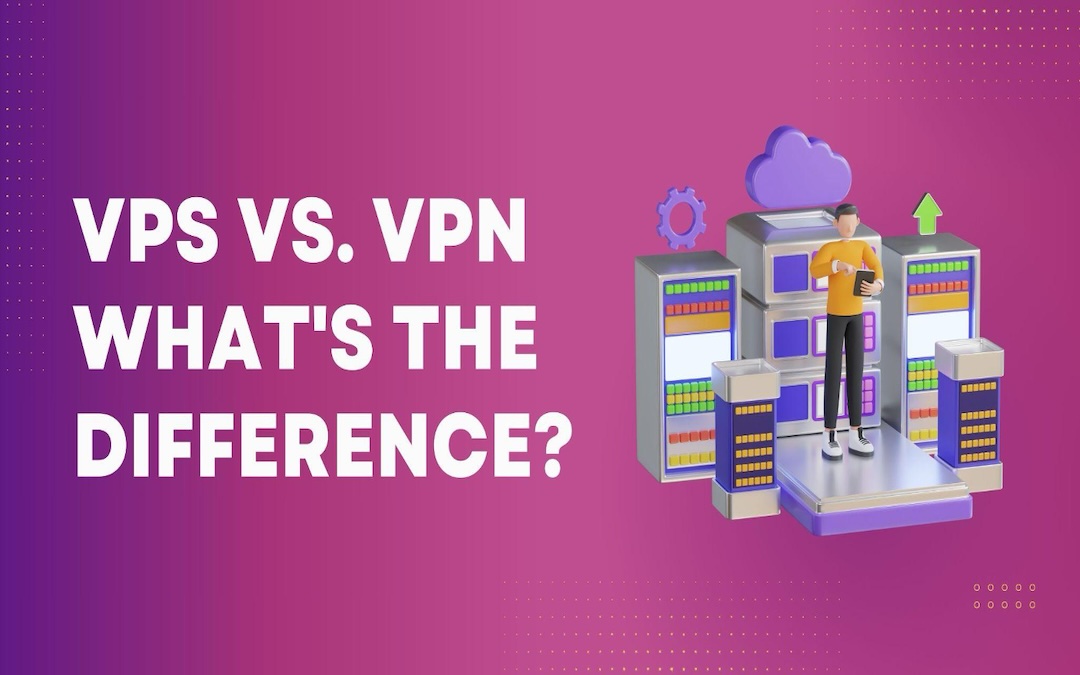
VPS and VPN are the most confusing words for users, particularly for newbies, as they have the same sounds and a common word, virtual private. However, besides these, both terms have different functions. A cheap VPS Server is helpful for those finding a perfect hosting solution for their websites.
A VPN is a tool for safe and private internet browsing and secures the users' data from hackers. In this article, you will learn the difference between VPS vs. VPN for making the perfect choice for your needs.
What is meant by VPS?
It is a virtual private server, which is a physical server that has been classified into smaller virtual servers. When you develop a website, it requires a server for storing all its data and files. Thus, you can opt for the best hosting option rendering your needs:
- Shared Hosting
- Cloud hosting
- Dedicated server hosting
- Colocation web hosting
- Managed hosting
- VPS hosting
What are the benefits of VPS?
It is a web hosting service. So, you can get a VPS for hosting your websites, articles, apps, and other forms of digital content. The following are some scenarios for using a virtual server:
Pros of VPS:
Some of the key benefits of VPS hosting are:
- Best performance: By using VPS Hosting, you have your dedicated server space separate from other users.
- Economical than dedicated hosting: VPS hosting plans are more affordable than dedicated servers.
- Server control: With a VPS, you can customize the server regarding your needs.
- Cloud-based solution: A cloud-based VPS performs the same as a traditional VPS, although it gives some additional perks.
Cons of VPS:
- A VPS is more costly than shared hosting.
- There is a need for technical knowledge for maintenance.
What are the use cases of VPS?
Here are some use cases for VPS hosting:
- You require better speed and performance.
- You want customization in your settings.
What is meant by VPN?
VPN means virtual private network that doesn't have any link with web hosting. However, it is a separate tool used to improve cybersecurity. A VPN secures your IP address and encodes your traffic so no one can see your online activities and cannot see your browsing data. Moreover, you can block any illegal access while you are away from your system. VPNs are available in various types of apps or software that link your device to a safe VPN Server Hosting.
What are perks of VPN?
- Modify your location: A VPN changes your IP address, the distinct number that determines you and your location in the world.
- Unblocks websites: Some areas of the world limit access to sites and apps you use for free like Google, YouTube, Wikipedia, and more.
- Secures your privacy: Changing your IP address with a VPN protects your identity from apps and websites trying to trace you.
- Enhances your security: If you use a VPN, then it will encrypt your traffic so you can securely browse online. You can use any type of network connection, irrespective of where you are.
What are the use cases of VPN?
The following are some best uses of VPN:
- VPN improves your online anonymity.
- If you are living in or are going to a country that limits or blocks websites, you will surely need a VPN to access the content.
- Best VPNs ensure that your connection is protected and safe.
Comparison of VPS vs. VPN:
Both VPS and VPN involve virtualized technology, but they serve very different purposes.
| Features | VPS | VPN |
|---|---|---|
| Goal | VPS server hosting is made for web hosting | it is made for online security and privacy |
| Functionality | It gives a dedicated server environment | It encrypts internet traffic |
| Control | It is highly customizable with server environment | Users control server only regarding their choice |
| Use case | It is used for hosting websites, apps and services | It is used for secure browsing, geo-blocks and transmission of data |
Opting for the perfect Option for Your demands: VPS vs. VPN
Selection between a VPN and a VPS is not about opting for one over the other. Hereby, these technologies are built for different goals and are tools for particular situations in business infrastructure.
A VPN is crucial when secure, remote access to a network is needed. Therefore, Virtual private networks are the best options for businesses that prefer data security while accessing resources over the Internet.
When there is a demand for a dedicated server environment without the expenses linked with physical hardware, a VPS is the best option. However, A VPS is ideal for businesses looking for control over their hosting with the ease of installing multiple software and configuration of settings.
Closing thoughts:
While VPS and VPN share similar acronyms, they serve entirely different purposes in the digital world. A VPS is a hosting solution designed for websites, applications, and server management, offering high control and performance. On the other hand, a VPN enhances online privacy by encrypting internet traffic and masking IP addresses, allowing users to browse securely and access geo-restricted content.
Both technologies play essential roles in different aspects of digital infrastructure. A VPS is ideal for businesses and developers needing a scalable, dedicated environment for hosting and managing online services. In contrast, a VPN is best for individuals and organizations looking to protect their data, bypass censorship, and browse the internet anonymously.
Share this post
Leave a comment
All comments are moderated. Spammy and bot submitted comments are deleted. Please submit the comments that are helpful to others, and we'll approve your comments. A comment that includes outbound link will only be approved if the content is relevant to the topic, and has some value to our readers.

Comments (0)
No comment